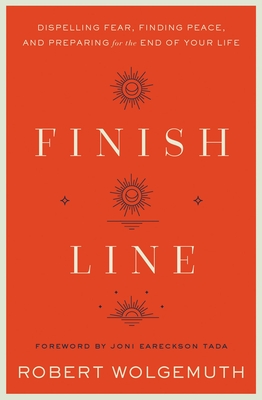How Believers Can Face Death Fearlessly

Fearlessly . . . Because of Heaven
You might want to brace yourself for what follows. It’s about death, and if you choose to read on, you can’t say you weren’t warned.
Ready?
Good.
Over the past sixty or so years, I’ve seen my share of corpses. Mostly in funeral homes where the bodies have been properly outfitted, coiffed, plasticked, and painted to camouflage the actual color and shape of their sunken faces.
But in October 2014, Bobbie, my wife of almost 45 years, died. I was right there. Holding her. Unlike those bodies in funeral homes, this time, death happened in my house. Up close. Over the preceding 30 months, I had braced myself for this moment. And it’s her death that has inspired me to write the following words: You can face the inevitability of your death as Bobbie did. Fearlessly. That’s it. That’s my message to you.
That autumn day, my daughters, Missy and Julie, where sitting with me next to Bobbie’s rented hospital bed, somewhat rudely plunked down in the middle of our pretty living room. Who wants a piece of furniture like that?
Enid, our faithful hospice nurse, was also there. She had come by the house only fifteen or so minutes before my wife slipped away. Enid had taken Bobbie’s blood pressure. It was very low. She then tried to take Bobbie’s pulse with her thumb on the backside of my wife’s wrist. At first, Enid told us it was faint. Gently laying Bobbie’s arm down. she told us there was none. Incredibly, we knew this because Bobbie had asked her.
“You don’t feel a pulse, do you?” Bobbie queried.
“No, Miss Bobbie. I don’t.”
Wanting the head end of her hospital bed to be lowered, she asked me to do this so the whole thing would be flat. I pressed the button on the remote control. Down it went with a familiar hum. Then she reached out, took me by the shirt with both hands, drew my face within a couple inches of hers and said “I love you so much” as clearly as she had said it in 1967 when we fell in love. She closed her eyes halfway and died.
“Is she dead?” Missy asked the nurse.
“Yes,” Enid said evenly.
She placed her hand on Bobbie’s chest to be sure. “She’s not breathing.”
I reached to Bobbie’s face and softly finished closing her eyelids, since she had failed to do so on her own.
Then my daughters stepped away, trying to process what had just happened. I sat for a few minutes next to the hospital bed, watching as Bobbie’s body slowly turned gray. Then cool to the touch. Then cold.
After my call to summon them, two body-bag toting men from the funeral home arrived with a wheeled stretcher. I joined my daughters outside the living room while the two men slipped my now late wife’s form inside the huge, black bag. They loaded it onto the cart and called for us, letting us know they were ready. The three of us joined the two of them, and what was once my vibrant wife, in the foyer of our home. They had only left Bobbie’s face visible. The men graciously stepped away.
The Good-bye Song
In that moment, Missy, Julie, and I took each other’s hand and stood encircling the gurney carrying my late wife. Their late mother. We sang a song we had sung . . . oh, maybe a thousand times when one of us was headed out of town, returning to college, or when a party at our house was breaking up. Bobbie had learned this song at River Valley Ranch somewhere in Maryland, when she was a young girl.
Good-bye our God is watching o’er you.
Good-bye His mercies go before you.
Good-bye and we’ll be praying for you.
So good-bye, may God bless you.
Wendell P. Loveless, copyright © 1938, Wheaton, Illinois, Hope Publishing
When we finished singing, I offered a short “thank you” prayer for this lady’s life and love and faith and beauty and grace. Nodding to the two men who, on that cue, finished zipping the body bag over Bobbie’s face, wheeling it out the front door to their van.
I’ve sung that song only once since that day, when Bobbie’s casket was being lowered into the ground at the cemetery. It’s too sacred to sing again under any other circumstances.
When we were married in 1970, Bobbie was a mere twenty years old; I was a much older twenty-two. Even though the death phrase was part of our traditional wedding vows, it was the last thing on our minds.
For the ensuing four and a half decades, many times Bobbie told me that she wanted to “be the first to die.” I always quietly nodded. Who wants to talk about death when the majority of your life stands before you? Not me. But now, I was facing the reality of Bobbie’s wish. She was dead. I was a widower. Missy and Julie were launching the remainder of their young lives, motherless.
Like so many each year around the globe, it was cancer that captured her at 64. The journey this disease took us on began with a visit to a woman’s oncology clinic in 2012 at M.D. Anderson in Orlando, where we lived. When Bobbie, Julie, and I first stepped off the elevator on the second floor, the waiting room was peppered with women. Some were reading a book, studying their smartphones, or quietly chatting with their husbands, sitting close by. Others were alone, doing nothing. Almost all were bald. A few had their naked heads covered with a scarf or a beanie of knitted yarn.
The feeling I felt that day I wish I could describe to you without the limitation of words, but I cannot. It is scorched into my memory where it will be until it’s my turn. And so, this visit to the second floor began a 30-month journey that ended that chilly October day when we sang “The Good-bye Song.” Bobbie had been nothing short of a warrior. I tried to be, too, and was successful much of the time.
What I’d like to say, right here, to you, is that the experience of walking through the door of death with my wife all but eliminated my fear of the same. Mostly, this was because of Bobbie’s remarkable attitude about the inevitability of her demise after being diagnosed with Stage IV ovarian cancer.
And although I’m deeply grateful to be alive right now, Bobbie showed me how to live with the promise of her own death without shaking her fist at a God in whom she trusted. In spite of the shameful rigors of what she went through, with me by her side, there was no complaining.
When I’ve told people that Bobbie didn’t protest, even during the horrendous effects of chemotherapy and a clinical trial that literally made her feel like she was freezing to death, even in the heat of a Florida summer, their quizzical looks tip their hand at wondering if I’m exaggerating. Even a little. I’m not. She did not whimper or complain, even hunched over the toilet throwing up the meager nutrition that had been left in her stomach. She’d finish vomiting, struggle to her feet. Hug me. And smile. Oh, and thank me for being there for her.
So how was she able to do this?
How did Bobbie do all this with such calm? Actually, there were many reasons, but I’d say the most important one was the view she had of her destination at the close of the adventure. In a word, it was “heaven.” God’s promise of what was waiting for her. That’s why she was fearless.
This promise of heaven was encapsulated in a Bible verse that she quoted more times than I could guess. It kept her on the edge of her seat. She hung onto these words with all her life. Literally.
“But as it is written, ‘Eye hath not seen, nor ear heard, neither have entered into the heart of man, the things which God hath prepared for them that love Him’” (1 Corinthians 2:9 KJV).
“Eye” has not seen . . . Bobbie was an artist. An accomplished painter she insisted that we visit every art museum we could. I did not resist. Heaven was a place that every artist with a keen love for all things beautiful could not imagine. She could hardly wait.
“Ear” has not heard . . . Bobbie was a musician. It was her amazing voice I first heard when I saw her perform in 1967. The anticipation of heaven meant something even beyond the symphonies her ears could have absorbed. She could hardly wait.
Not entered into the “Heart” of man . . . when Bobbie’s Bible disclosed the deepest things in her heart, the word “heart” meant the control room of her emotions. And her thinking. Her dreaming. And her cancer. From the first time she and I talked about important things, she almost always brought up something about her dreams. Her aspirations. Her hopes. What might be. What could be, by God’s grace.
Heaven was a place beyond her wildest dreams. She could hardly wait.
As you and I anticipate heaven on this side of the curtain, all these things can be ours. Our eyes, our ears, and our hearts will be overwhelmed. We can face our own demise, without being frightened. How does that sound?
Thank you, Bobbie, for showing us the way. Fearlessly . . . because of heaven.
Photo credit: ©GettyImages/Ben Roberts Photography

Robert is known as a champion for the family, effective communication, leadership, listening skills, relationship building, and biblical truth. Among his professional accomplishments, he has served two terms as the Chairman of the Evangelical Christian Publishers Association. A 1969 graduate of Taylor University, from where he received an honorary doctorate in May 2005, Dr. Wolgemuth has two grown daughters, two sons-in-law, and five grandchildren. Robert is married to Nancy DeMoss Wolgemuth, who is the host of the daily radio/podcast, “Revive Our Hearts.” She is also an accomplished author and speaker. Nancy and Robert live in Michigan.
Originally published March 07, 2023.







